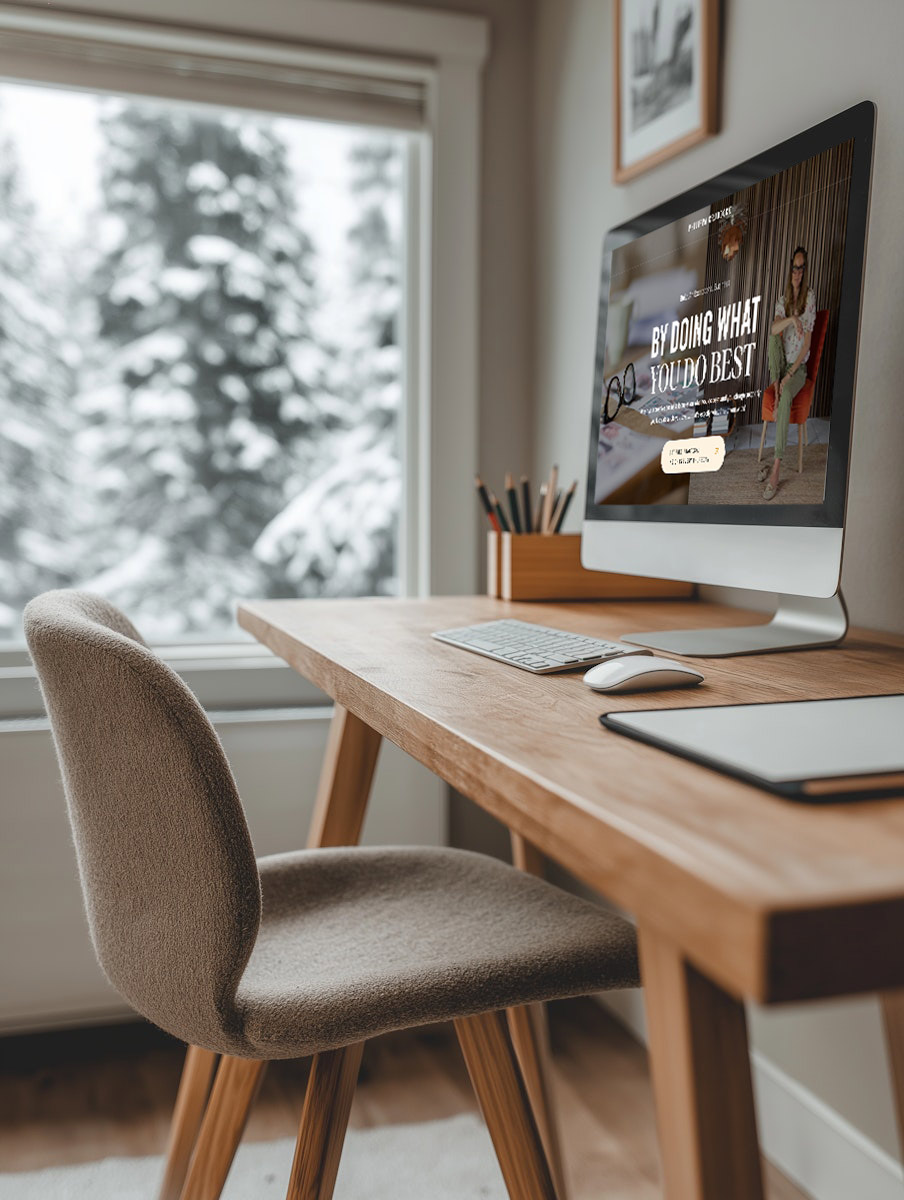I was reminded of something interesting and helpful while working on our new website. In mid-December, I decided to step away from social media, news feeds, and all those group chats we can find ourselves part of. This intentional step created exactly what I hoped it would – not only did I complete the website in a matter of weeks (rather than the months it could have taken), but I experienced once again that valuable sense of spaciousness in my work days.
This wasn’t just about completing tasks more quickly – though that certainly helped. It was about finding a clarity that can feel increasingly rare in our constantly connected world. I could work intensely when needed, then actually leave work behind in the evenings, being properly present with family and friends. Without that constant digital buzz in the background, everything felt clearer and calmer.
This experience highlighted something worth considering about running a creative business: our relationship with digital tools isn’t simply about being online or offline – it’s about understanding when these tools help us and when they might be holding us back.
The Science Behind the Scatter
There’s something quite revealing about how our brains process online information. In just one scroll through social media, we might encounter everything from world news to business advice to friends’ updates – all within seconds. Our brains are trying to process and categorise all of this while also attempting to focus on running our businesses.
Research shows that it takes our brain about 23 minutes to fully refocus after each interruption. Even more interesting? While many of us think we’re good at multitasking, studies have found that only about 2% of people can actually do it effectively. For those of us who find multitasking challenging (myself included), this research helps explain why focused time can be so valuable.
When Digital Tools Affect Our Work & Creativity
This becomes particularly noticeable when working on something creative or making important business decisions. If we’re constantly connected, it’s like trying to have a quiet conversation in a noisy room with people constantly vying for our attention. All these digital inputs create a background noise that can make it harder to hear our own thoughts clearly.
Research suggests these distractions can have an even greater impact on creative work. When our brains are processing lots of incoming information, they naturally shift into a reactive mode rather than a creative one. It’s like the difference between having a blank canvas to work with versus trying to paint on one that’s already filled with other people’s work.
Creating Practical Boundaries
Some helpful boundaries can be surprisingly simple. For instance, keeping your phone in a different room when working on something that needs full attention. At first, this might feel strangely difficult – which seems almost funny given that many of us happily leave our phones elsewhere at night. Research actually supports this practice: studies have shown that just having our phones nearby – even when we’re not using them – can affect our ability to think clearly and focus.
Other approaches that might be worth trying:
- Turning off notifications on devices
- Keeping phones on silent (with emergency contact options in place)
- Closing down social media and email platforms during focused work
- Being intentional about when to check messages and when to step away
Finding What Works For You
The key is finding what works for your specific situation and business. This isn’t about creating rigid rules that make us feel guilty – it’s about building patterns that generally help us work better. There will be days when it all goes out the window – when client emergencies pop up or when we really do need to be more connected. That’s completely fine.
What can be helpful is noticing when you do your best work. When do you naturally feel most creative or focused? Those might be the times to protect first. Maybe that means turning off notifications during those hours, or setting up a simple auto-response to let people know when you’ll be checking messages.
Creating Space for What Matters
What began as a practical step to help focus on one project has gently shifted into a different way of thinking about digital space in daily work. This isn’t about disconnecting completely – that’s not realistic or even desirable when running a business. But perhaps we can start looking at our digital tools more like a busy city – wonderful for connection and opportunity, but also perfectly fine to step away from occasionally, to find some quiet space where we can think more clearly.
Sometimes the most valuable changes in our businesses don’t come from adding more – more tools, more platforms, more connections. Sometimes they come from creating space: space to think deeply, space to work intentionally, and space to let our creativity breathe.

I completely agree and this is so relevant to my life right now. Only yesterday I left my phone out in the corridor while I worked in the morning. It definitely helped me focus. I am now encouraged that it is not just me, and will try to factor in this focused time each morning. Thanks for the great advice as always!
I love hearing this! It’s great that you’re already seeing the benefits of focused time – and no, it’s definitely not just you! Thank you for sharing. Xx